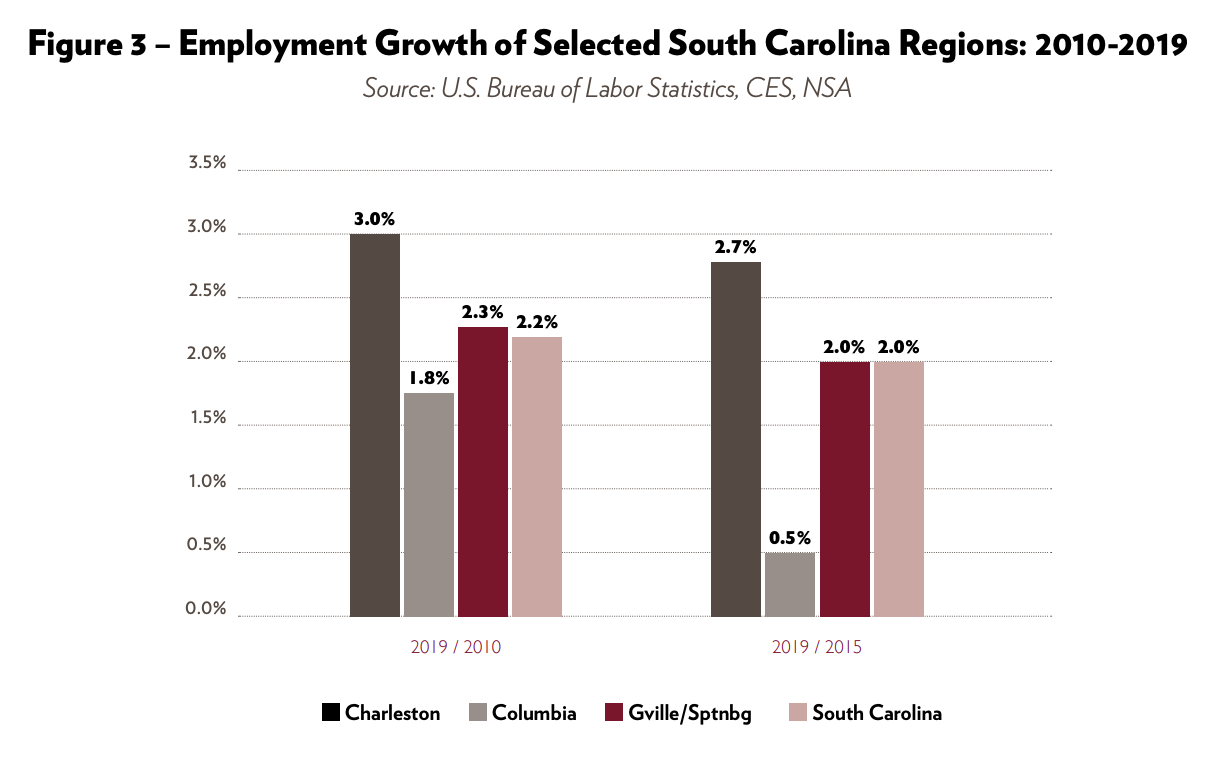UofSC remains major statewide economic force, new study finds
March 3, 2021The University of South Carolina pumps approximately $6.2 billion annually into the state’s economy, making it a major contributor to the Palmetto State’s growing job market and an essential part of its future economic prosperity, according to a new study released Wednesday, March 3.
The findings are part of a study by researchers at UofSC’s Darla Moore School of Business and is an update of a 2017 report that found the university’s annual statewide economic impact was $5.5 billion, representing $700 million of growth over four years.
Among the study’s key findings:
- The total impact of the UofSC’s eight institution system is estimated at approximately $6.2 billion annually. Total economic impact is defined by the annual dollar value of all goods and services associated either directly or indirectly with the university.
- The total annual economic impact of UofSC on the Columbia metropolitan region is approximately $3.7 billion.
- UofSC contributes $1.7 billion towards labor income and supports 1 in every 9 jobs in the Midlands community (43,876 jobs overall). Of those, 13,705 are employees working directly for UofSC.
- The UofSC system supports a total of 63,689 jobs, representing $2.6 billion in labor income.
- The UofSC system is responsible for returning more than $202 million is annual tax revenue to state coffers.
- UofSC’s Columbia campus will continue to be a key driver in future economic growth for the Midlands region.
The study also examined how the university’s Columbia campus can play a central role in boosting future economic growth in the Midlands region, which has for the past decade lagged behind the Charleston and Greenville/Spartanburg metropolitan areas. (See Figure 3 below).

Moore School economist Joseph Von Nessen, the study’s lead researcher: “The ongoing COVID-19 pandemic could pose as a significant challenge to the region’s ability to spur growth in the short term, given the state capitol’s reliance on state and federal funding,” However, UofSC’s focus on producing highly skilled graduates in competitive fields, coupled with its efforts to attract new private research partners to the region, “has the potential to significantly boost growth throughout the 2020s,” the study concluded.
UofSC, through its Office of Innovation, Partnerships, and Economic Engagement, has worked to create research partnerships with corporate leaders in advanced manufacturing, artificial intelligence, pharmaceuticals and more. The proposed UofSC health sciences campus also will include a new School of Medicine and public/private research laboratories, creating a hub for biomedical education and innovation in the heart of Columbia.
Growth in existing industry and new business spin-offs would help keep skilled graduates in the Midlands. That’s critical, the study says, because even small increases in the retention of college graduates can have a significant regional economic impact—an estimated $14 million annually for every one percentage point increase in graduate retention.
“As the flagship university for the state of South Carolina, serving the people of South Carolina, we are very pleased to see the economic impact our university is having,” said UofSC President Bob Caslen.
A future Moore School study will further examine the impact of the individual system institutions on various regions of the state, including Aiken, Beaufort, Upstate and the four regional Palmetto College institutions.
To read the entire study, visit go.sc.edu/economicimpact













